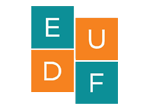PATHWAY TO FINLAND
Online pathway to prepare yourself for higher education and life in Finland
Online Nordic Pathway:
- Enhances your knowledge i.e. in AI, Mathematics and language skills.
- Facilitates your cultural adoptation.
- Smoothens your transition to degree studies.
This 5-month online pathway programme offers entry to Bachelor’s degree programmes for Indian and Emirati, Saudi Arabian and Lebanese students at Metropolia, SAMK and VAMK.
- Online Nordic Pathway is a programme jointly organized by Finnish Consortium consisting of Metropolia, SAMK and VAMK Universities of Applied Sciences. The programme is targeted at students who want to study a Bachelors’ degree programme in English at Metropolia, SAMK or VAMK. NB! When applying in the pathway, the applicant already applies to a certain university and degree. This choice cannot be modified after.
- This online pathway is exclusively marketed in India by StudyNordic and in UAE, Saudi Arabia and Lebanon by Edufinlandia, both being the official collaboration partners of Metropolia, SAMK and VAMK.
- You will study the first 5 months in your home country (India /UAE/Saudi Arabia/ Lebanon) online and the remaining years in Finland. The courses are taught by Finnish university of applied sciences teachers.

- Duration of pathway studies: 30 ECTS
- Fee for pathway: 3500 EUR
- Admission period: October 6 th to October 20th 2023.
- Studies begin: in January 2024
- Admission criteria: IELTS academic 6.0, and Higher Secondary school certificate in India, or All India Secondary school certificate, baccalauréat libanais (Lebanon), Shahadat Al-Thanawiya Al-Amma (UAE), Tawjihiyah (Saudi Arabia)
- Application documents:
- A scanned copy of the IELTS academic
- A scanned copy of the Higher Secondary school certificate in India or All India Secondary school certificate
- A scanned copy of the baccalauréat libanais (Lebanon)
- A scanned copy of Shahadat Al-Thanawiya Al-Amma (UAE)
- A scanned copy of Tawjihiyah (Saudi Arabia)
Pathway studies Spring 2024
Each course is 5 ECTS credits, altogether pathway studies are 30 ECTS. 1 ECTS is 27 hours of work. Courses will be assessed as passed or failed.
January 8th – March 8th:
- Finnish 1
- Academic English
- Introduction to AI
March 11th – May 3th:
- Academic writing
- Sustainable development
- Mathematics

Degree programmes offered via pathway
Metropolia (15 seats):
- Smart Automation (4 seats)
- Construction IT (3 seats)
- Laboratory Science (4 seats)
- Automotive Electrics (4 seats)
SAMK (15 seats):
- Artificial Intelligence
- International Business
- International Tourism Management
- Logistics
- Mechatronic
VAMK (15 seats):
- Information Technology (7 seats)
- International Business (8 seats)
Courses for pathway studies
In this course, you will learn about the basic features of the Finnish culture and customs, such as greetings and etiquette. You will also practice oral and written communication in simple everyday situations and daily routines, such as meeting and getting to know people, telling basic things about yourself and shopping. You will acquire basic grammatical structures, such as verb types, conjugating verbs in the present tense, basic form plural of nouns and adjectives, singular partitive and genitive, consonant gradation, possessive structures and asking questions. You will also get familiar with the key characteristics of spoken Finnish.
This course is suitable for beginners who have no prior knowledge of Finnish or who have very little knowledge of Finnish. The course consists of online lectures, exercises, assignments and tests. The course requires active participation and independent work.
Learning goals:
On completion of the course, the student will understand simple and clearly spoken Finnish in very familiar everyday situations. The student will be able to tell briefly about his/her background, home and daily routines and understand short texts about familiar topics. The student’s communication skills will correspond to the skill level A1 as defined by the Common European Framework of Reference for Languages (CERF).
In this course, you will learn essential skills and strategies to enhance your proficiency in Professional Academic English. You will have the opportunity to further develop your professional English language skills, enabling you to effectively communicate in a variety of work life and academic settings. You will gain an understanding of how communication impacts their credibility and professional image, as well as its influence on your academic success.
Learning goals:
With an emphasis on understanding different language registers, this course will also equip you with the knowledge and techniques necessary to produce high-quality academic texts. Understanding the significance of selecting the right style and register will empower you to convey your ideas in a clear, concise, and academically appropriate manner.
In this course you will learn Artificial Intelligence (AI); AI libraries with Python; Hands-on with AI libraries.
Learning goals:
- Basic principles of Artificial Intelligence (AI)
- Using AI tools
- Understanding which problems AI can and cannot solve
- Understanding the future of AI
- Ethical perspectives and sustainable working methods in AI
The course on Academic Writing provides the student with the ability to cope with studies at higher education institutes. Using real-life, practical cases, and experiential educational approaches, students learn basic academic writing principles and learn to participate in tutorials. These skills are essential in studies, working in teams, writing essays, reports and other documents.
The content of the Academic Writing is:
- Types of academic writing: descriptive, analytical, persuasive and critical
- Information retrieval skills: searches from databases of the field and specific to professions, evaluation of reliability, copyright
- Academic writing: referencing, paraphrasing, text references and list of references, formal style, thesis report and its parts, thesis instructions, critical reading of research
- Ethical principles: identification and consideration of the most important ethical principles, publicity, anonymity, research permissions, plagiarism.
Learning goals:
- Write formal, objective and technical texts for different purposes
- Retrieve information from various sources and evaluate critically the content
- Convey information in an impartial way
- Adhere to legal and ethical principles for academic writing.
Learning Outcomes:
The student knows the principles of Sustainable Development in the economic, social and environmental dimensions, and is familiar with the United Nations Sustainable Development Goals.
They understand the targets of Sustainable Development and Circular Economy in today’s and future societys and global causes for Sustainable Development and Circular Economy.
Contents:
Resource scarcity. The dimensions of Sustainable Development. Circular Economy and its business models. Sustainable Development and Circular Economy in businesses.
Recommended or Required Reading and Other Learning Resources/Tools:
Material given by lecturer, Circular Economy publications made by The Finnish Innovation Fund, Sitra.
Mode of Delivery / Planned Learning Activities and Teaching Methods
- Lectures
- Project work
Assessment Criteria:
- 1: The student masters the most essential knowledge required for following courses and working life.
- 3: The student is able to utilise the methods learnt during the study unit independently.
- 5: The student is able to utilise the methods learnt during the study unit independently and is able apply the learnt knowledge in new contexts.
Assessment Methods
- Project work
- learning diary
This course is designed to help prospective bachelor’s students to prepare for the mathematical concepts and skills required in their studies. The course covers topics such as calculus, linear algebra, statistics and probability. The course also provides a review of basic mathematical tools and techniques. The course aims to help students develop their quantitative and analytical abilities, as well as their problem-solving and logical thinking skills.
The course consists of online lectures, exercises, assignments and tests. The course requires active participation and independent work.
Learning goals:
- Apply calculus and linear algebra, and to have moderate knowledge in statistics and probability concepts.
- Review and use basic mathematical tools and techniques for quantitative and analytical purposes.
- Develop their problem-solving and logical thinking skills through mathematical reasoning and modeling
Featured by three Universities of Applied Science



